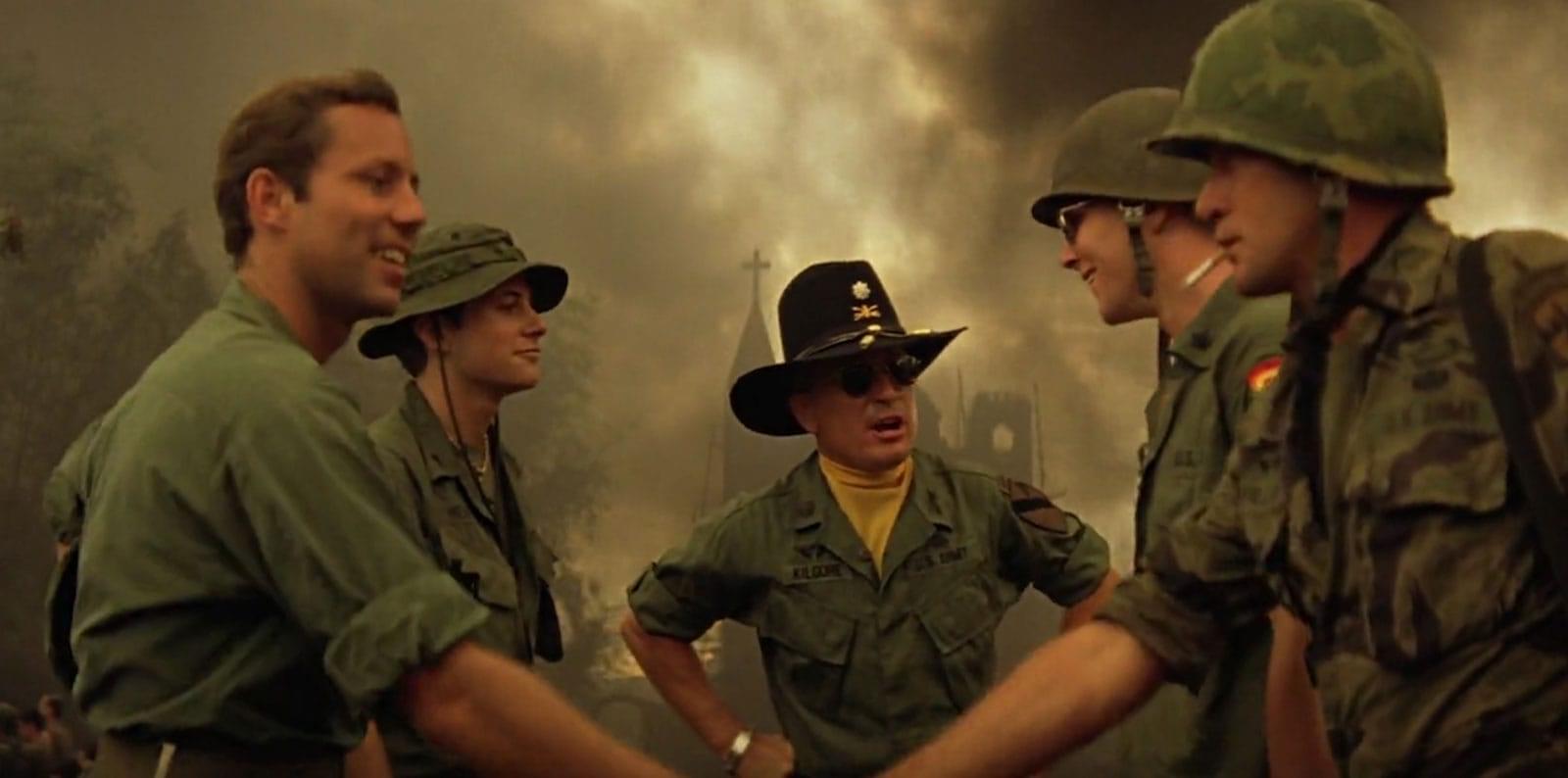#58 Apocalypse Now
In Summary
After making The Godfather Part II, Francis Ford Coppola looked for a change of scenery, heading into the jungle to re-tell Joseph Konrad's classic novel, Heart of Darkness, moving the setting from the Congo river to the recent Vietnam war.
In a famously troubled production that involved continuous script rewrites, sets being destroyed in tropical storms and the film's star, Martin Sheen, suffering a heart attack, the end result is a film that threatens to reach great heights but constantly seems to lose track of the point it wants to make.
Centering around the quest of Captain Willard (Sheen) to track down a rogue colonel, Kurtz (played by a bloated and barely intelligible Marlon Brando), Apocalypse Now is as much a journey into a state of mind as it is a physical journey down a river.
Willard is portrayed as a quiet, stress-addled yet authoritative figure. It is his narration that guides the film's sprawling plot across the various excesses of America's war in Vietnam. From the bombastic Colonel Kilgore (Robert Duvall), to Playboy Bunnies, to tigers and LSD trips, Apocalypse Now portrays Vietnam as a conflict between American machismo and a native mysticism.
The first hour or so of Apocalypse Now is the most compelling, with Willard largely playing the role of a spectator inside the American war machine. As Kurtz comes closer into view, the film loses its sense of direction.
Much of Apocalypse Now portrays the American war effort in Vietnam as excessive and unfocused, with the chief aim seemingly being to keep its soldiers occupied than to win the war. This critique justifies Kurtz's supposed descent into madness - in the sense that perhaps he is the only truly sane American in this war.
Furthermore, once Kurtz is finally introduced his message is lost in the grandiose and barely intelligible dialogue delivered by Marlon Brando. It helps portray Kurtz as a man who has gone too far down a line of thought, but it leaves his justification unclear.
It is on that note of muddiness that Apocalypse Now ultimate ends. Perhaps that is the entire point of the film, but the overriding sense is that the intended message was lost somewhere across the film's sprawling plot.
A Memorable Quote
I love the smell of napalm in the morning.Things You May Not Know
- Francis Ford Coppola had to mortgage his house in order to raise the funds to complete the film.
- It took longer to film Apocalypse Now than it did the entire The Lord of the Rings trilogy.
- Nearly 300 hours of footage were filmed for this film, it took Francis Ford Coppola three years to edit the first cut.
One of the Greatest of All Time?
The troubled production history of Apocalypse Now is well known, it serves to enhance the sense that the film Francis Ford Coppola wanted to make got away from him. The sprawling plot and lack of a conclusive ending are the film's biggest issues, however, the sense of excess and this sweltering, frazzled atmosphere also help make this film so memorable.
Apocalypse Now is the kind of film that lives with you long after you have seen it. With several iconic scenes - in particular, the Wagner-orchestrated napalm bombing of the Vietnamese village - and excellent acting performances across the board, it is an incredibly impactful film despite its overall lack of focus.
Apocalypse Now is a film that manages to simultaneously succeed and fail and is all the more memorable because of it.

Comments
Post a Comment